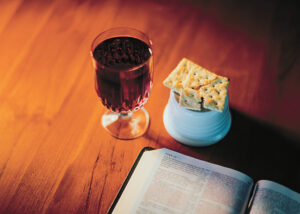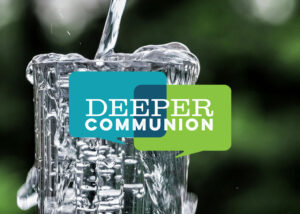It’s all I could think about in the days leading up to that Thursday in February.
That week, in my commutes, in my classes and in my daily tasks, my mind drifted to it. When I turned on the news or visited coffee shops, I heard debates about it. Walking down the street, I noted the red and white all around, and I wondered, “Has it always been this way?”
I say this as I listen to a podcast blasting analysis about it.
Come puck-drop, though, none of that mattered, or so I told myself. All that mattered was winning and showing them who “we” are.
I refer to the February 20 final of the NHL-sanctioned “4 Nations Face-off” in which Canada played the U.S. in a game that launched hockey into international headlines. Planned largely due to a sagging All-Star game, the tournament was announced prior to the 2024–2025 season as an innovation meant to pit the “best vs. best” wearing their country’s colours. At first, interest was muted, but a flurry of adjacent geopolitical headlines in early 2025 catapulted what was initially “just” a hockey game to a matter of indispensable national pride.
“I just hope we win,” a friend told me, “because I don’t know what I’m gonna do if we lose. I just can’t take that right now—not with all that’s going on.”
Now, let me be clear up front: I am a rabid hockey fan. Being born and raised in the self-proclaimed City of Champions, I could go on about the Oilers and how a team can cut right to the heart of what it means to be from somewhere. But with that (actually, because of that), one thing I will never say is a phrase I heard repeatedly during this latest tournament: “Leave politics out of sports; just enjoy the game.”
I think that phrase is misguided in many ways, but the main thing I want to draw out now is how at the heart of what might be “just a game” are actually the very ideas of how we construct a sense of who we are as a country—and that is never nonpolitical.
For something like sports, maybe the end of all the kerfuffle is a moot point, but even then, all the adjacent stuff—the community, history and culture—are matters of real consequence. Perhaps that’s why sports play such a big role globally—they say something about who we are.
If nothing else, apart from more Connor McDavid magic, the “4 Nations Face-off” reminded me of how people look to greater things to define themselves, showing that the “me” is never far from the “we” (and, in this case, the “them”). With that truth comes vital questions, especially for aspiring Anabaptists today—those who walk in the heritage of radicals who once refused to have their faith defined by states.
What will “we” be defined by today: A flag? An imagined history? Colonial lines? “Them” and the threat “they” pose?
Are we building solidarity in ways that reinforce group identities founded upon “power over,” or are we leaning into the Jesus way, which will (or should) cause us to question and seek power “from under”? In my experience, following Jesus, reading Scripture and being in relationship with those unlike us leads to an inevitable clash of ideas around “me,” “we” and “them.”
For those on the Jesus way, does not the banner of Jesus miraculously drawing us all together provide far more meaning and purpose than any supposed connection we have with millionaire hockey players? The Jesus way begs us to flip it all on its head and claim solidarity with our global brothers and sisters.
The next time a puck—or ball or whatever—drops, and the pride of a nation is supposedly on the line, I would invite you to consider: what does all this say about how I envision “us”? It might just surprise you, like it did me, where this question may lead.
Justin Sun is a student at Vancouver School of Theology/Vancouver Coastal Health.
Likeness
Confession: I didn’t watch the game, though I live in Boston, where it was played. But I did get live updates from family: “Canada won!!!! In overtime!! Can you hear the cheers?”
These days, my American friends quip, “At least you have an exit strategy.” It’s true; I have the freedom that citizenship offers to return to communities that are “like me.” But I refuse to make decisions based on fear or belief in a nation-state’s superiority. For now, I choose to stay.
Justin recalls the Anabaptist “heritage of radicals” resisting state violence—a guiding light for me. Yet there’s a flip side. Anabaptist communities often sought peace by fleeing to places where they could control boundaries of belonging—defined by shared beliefs and ethnic/racial identity. This is a solidarity of likeness.
My partner and I have been talking about solidarity, how it is fundamental to peace, but not itself a path to peace. We ask, “Solidarity with whom, to what end?”
Solidarity can build communities of belonging, disrupting power systems that choose some while disregarding others. This solidarity is uncomfortable—not as exciting as collective celebrations of Canada’s win. But I’m compelled by the way solidarity can trouble dividing lines, and this makes me want to stay in the discomfort.
Anika Reynar works in Boston as a facilitator and mediator in environmental disputes.
Religious
“Hockey is Canada’s religion.” We often hear statements like this around tournaments like the Olympics or, more recently, the 4 Nations Face-off that Justin refers to. And how much more so, given the politically charged atmosphere in which this tournament took place.
As a lifelong hockey player and fan, I, too, was glued to my television and invested far too much of my emotional energy and identity in a game. I’m not proud to say that my zeal could be said to have bordered on the religious!
I wonder if there is a deeper truth revealed by the statement I began with. Perhaps it says less about Canadians’ love for hockey than it does about our radically diminished religious horizons. Perhaps it’s not so much, “We love hockey so much that it’s almost like a religion!” but “There’s so little else that matters to us, and our identities are such fragile things that we will settle for a bunch of millionaires who happen to have been born on the same chunk of dirt as us winning a hockey tournament to give our lives (fleeting) meaning.”
Perhaps the statement “Hockey is Canada’s religion” is less about how much hockey matters to us as how little religion does.
Ryan Dueck is pastor at Lethbridge (Alberta) Mennonite Church.
Solidarity
I’m the least athletic person you know, but I always find sports fans kind of adorable in their devotion. I like it when humans get excited about things, even hockey. There’s something wholesome and holy about being rooted in a particular place, connected to a particular land and culture.
This is something I’ve learned about from my Cree neighbours, from theologies of the Incarnation and from Simone Weil, who writes with a specifically French sense of terroir—the idea that the earth of a particular place results in a particular wine or cheese or onion to be proud of.
But local pride and friendly competition aren’t the same as nationalist supremacy. Justin identifies where we go wrong: when we seek power-over, or privilege over, or when our earthly allegiances override our call as Christians to love an ever-expanding network of neighbours.
As Pope Francis recently reminded U.S. bishops on the question of immigration, “With charity and clarity we are all called to live in solidarity and fraternity, to build bridges that bring us ever closer together, to avoid walls of ignominy and to learn to give our lives as Jesus Christ gave his for the salvation of all.”
Cindy Wallace is professor of English at St.Thomas More College at the University of Saskatchewan.






Leave a Reply
You must be logged in to post a comment.